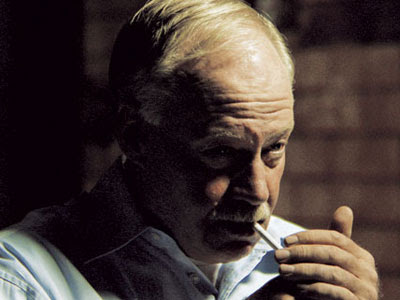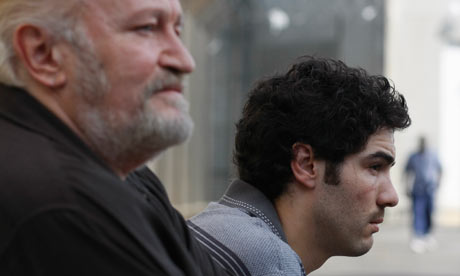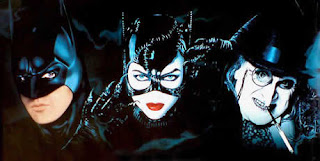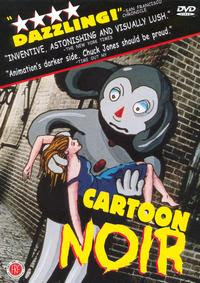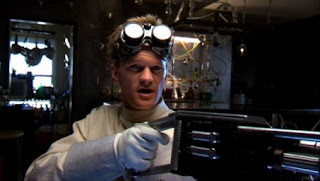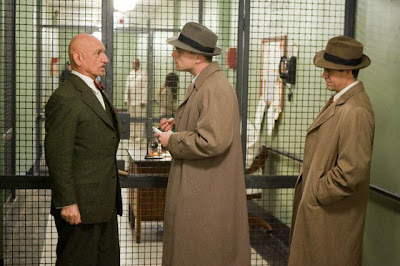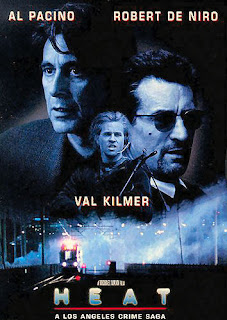This week
The Last Airbender hits theatres, and I won't be watching. Whatever your feelings on the issue of
racebending, I was recently shaken by how utterly rare a new mainstream film featuring non-white leads truly is. The packaging for these films is even worse: even
Invictus, with Morgan Freeman as Nelson-freaking-Mandela, portrays the actor as an aside to Matt Damon. And when a POC does appear front-and-centre, it's always with a nod to blatant stereotyping--spoof genre flicks like
Black Dynamite, action flicks like
Ninja Assassin. (This isn't surprising when you look at studies of
casting bias in Hollywood, by the way.) In short, we could really have used a film version of the hit 2005 TV series,
Avatar: The Last Airbender, that celebrated the Asiatic and Inuit influence of the original in its casting choices. In its stead, I hope the following list will serve as a decent resource and stepping stone for viewers looking to diversify their family-friendly viewing experiences.
Now, this is by no means a comprehensive list, but after viewing
this TED talk featuring Nigerian author Chimanda Adichie, I decided I wanted to stick to films that don't just reiterate one over-played, invariably victimizing story of various cultures. It also helps that almost all such films have ratings over PG-13, whereas here I am trying to start a list of films accessible to families of all age ranges. (And yes, for the purposes of avoiding the "one story" problem, Disney films like
Mulan,
The Jungle Book, and
Aladdin are definitely out.) To each film I have attached a rating in the following hierarchy: 1) Canadian/Ontario if possible, 2) Canadian in general if no Ontario-specific listing exists, 3) US if no Canadian rating exists, and 4) Australian if no Canadian or US rating exists. All the films listed below are available/will soon be available at Gen-X!
Please, please, please add to this list in the comments portion. I am absolutely
not an authority on this subject, and thus welcome as many legitimate add-ons as the fine, intelligent readers of this blog can come up with. Happy viewing!
Family-Friendly Films with Non-White LeadsAkeelah & the Bee (CDA:G)
A feel-good drama wherein African-American schoolgirl (Keke Palmer) earns the help of an old African-American spelling bee champ (Laurence Fishburne) on her own road to national acclaim.
Babies (US:PG)
A light documentary exploring one year in the life of four babies from around the world (Mongolia, San Francisco/USA, Namibia, Tokyo).
Bride & Prejudice (CDA:G)
A re-envisioning of Jane Austen's
Pride and Prejudice, Bollywood-style.
Cave of the Yellow Dog, The (US:G)
A light drama about a young nomadic Mongolian girl and the little dog she befriends against her parents' wishes.
Game Plan, The (CDA: G)
A mainstream comedy about an African-American NFL bachelor (Dwayne "The Rock" Johnson) whose life is transformed by custody of his eight-year-old daughter (Madison Pettis).
Good Hair (CDA:PG)
A lighthearted documentary by Chris Rock about African-American hairstyles, in honour of his daughter.
Great Debaters, The (US:PG-13)
A fictionalized accounting (inspired by a true story, though sadly distorted on a few key facts) of an all-African-American debating team that in the midst of segregation and threat of lynching takes on Harvard. (Denzel Washington [actor and director!], Forest Whitaker, Nate Parker, Denzel Whitaker, Jurnee Smollett)
Grave of the Fireflies, The (CDA:PG)
A serious drama done in the style of Japanese animation, which documents the tragedy (read: very unhappy ending/beginning) of two Japanese siblings increasingly isolated and starved in the civilian fall-out endured during the last months of World War II.
Kirikou and the Sorceress (AUS:G)
An educational cartoon about a boy from West African folklore, who at birth is wise enough to solve his village's many problems. NB: Most of the people in this film are nude; when asked to air-brush pants and bras onto the characters to broaden the film's reach into North America, director Michael Ocelot refused on the grounds that he wanted to stay faithful to the culture from whence this folklore emerged. (I also recommend the mid-quel
Kirikou and the Wild Beasts, which is unfortunately unrated but just as refreshingly educational.)
Not One Less (AUS:G)
A quiet drama about a 13-year-old rural Chinese girl (Minzhi Wei) put in charge of a remote school during the real teacher's absence, who strikes out on a rescue mission when one of the boys in her care abandons his education to find work in the city.
Osama (CDA:PG-13)
A serious drama about an Afgani family of three women under the Taliban regime who have no choice but to send the daughter (Marina Golbahari) out masquerading as a man so the family won't starve. (NB: Very unhappy ending!)
Pather Panchali (CDA:PG)
A quiet drama, representing a distinct narrative style, by Satyajit Ray from 1958 about a Bengali boy (Subir Bannerjee) whose family struggles between long-term dreams and day-to-day poverty in the 1920s.
Princess and the Frog, The (CDA:G)
A Disney re-envisioning of the classic Grimm's Fairy Tale, this film is the story of an African-American girl in 1920s New Orleans who kisses the titular frog prince, finds herself cursed as well, and sets out on an adventure towards true happiness.
Rabbit-Proof Fence (USA:PG)
A serious drama inspired by the true story of three Australian Aboriginal girls who attempted a daring escape from an oppressive government policy in 1931 by setting out on a 1,000-mile journey through the Outback home.
Sita Sings the Blues (AUS:PG)
A musical tale spun from the tragic Hindu story of deities Lord Rama and his faithful wife Sita, set to varying animation styles as Sita endures test after test to prove her devotion after conspiracy among other deities separates her from her love.
Story of the Weeping Camel, The (US:PG)
An endearing drama about a family of Mongolian nomads who seek the help of a musician, in keeping with cultural ritual, when a camel calf in their herd is rejected by its mother.
Whale Rider (CDA:PG)
A coming-of-age adventure situated around the story of a young Maori girl whose destiny lies in breaking a thousand-year-old all-male lineage of leaders in her tribe.
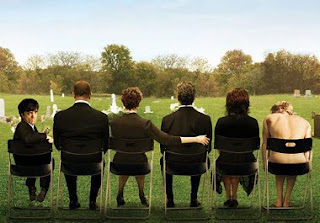 Ah yes...leave it to the Brits to put the "fun" back in "funeral."
Ah yes...leave it to the Brits to put the "fun" back in "funeral."
